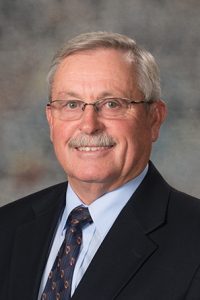Higher payments on certain game and parks lands considered
The Revenue Committee heard testimony Feb. 21 on a proposal that would update state law requiring the state Game and Parks Commission to make payments in lieu of taxes on lands it uses for wildlife management.
Current law requires the commission to make payments in lieu of taxes to county treasurers on lands acquired for wildlife management purposes on or after Jan. 1, 1977. The payments are the same as the real property taxes that would have been paid on the land as if it had been owned privately.
LB829, introduced by Bayard Sen. Steve Erdman, would require the commission to make payments on all lands it has ever acquired for wildlife management purposes. Additionally, the proposal would require county assessors to value the lands as if they were being used at their “highest and best use.”
Under current law, county assessors value the lands as if they were being used for the use they had immediately before acquisition, excluding any improvements on the lands before or after the acquisition.
Erdman said not requiring the commission to make payments in lieu of taxes on lands it acquired before 1977 effectively raises taxes on a county’s property taxpayers.
He said LB829 would provide property tax relief by requiring the commission to make payments on all lands and by allowing county assessors to adjust the valuation of commission lands if they determine that they are not being used for their original use.
The commission estimates that the bill would increase its payments in lieu of taxes by approximately $546,000 to $2.4 million annually.
John Cannon, deputy director of the Nebraska Association of County Officials, testified in support of LB829. He said the Legislature decided that the state should pay a share of county property taxes by requiring the commission to make payments in lieu of taxes.
By exempting certain commission lands from that requirement, and by not requiring those payments to be based on the land’s highest and best use, as it is for every other property owner, current law shifts that tax burden onto county residents, Cannon said.
“To the extent that we’ve decided the state should pay a share,” he said, “I think it’s only logical we should ask them to pay their fair share.”
Testifying in opposition to the bill was Timothy McCoy, deputy director of the state Game and Parks Commission. He said wildlife management areas are open to the public and provide an economic benefit to nearby communities through hunting, fishing and outdoor recreation.
He said the payments in lieu of taxes are not static but can increase based on valuations of similarly classified land.
Kristal Stoner, executive director of Audubon Nebraska, also testified in opposition, saying LB829 would divert funds that the commission needs to steward the state’s natural resources and maintain public access to wildlands.
“Restoring and maintaining our natural areas and habitats statewide is a public service and is beneficial to all Nebraskans,” she said.
The committee took no immediate action on the bill.

